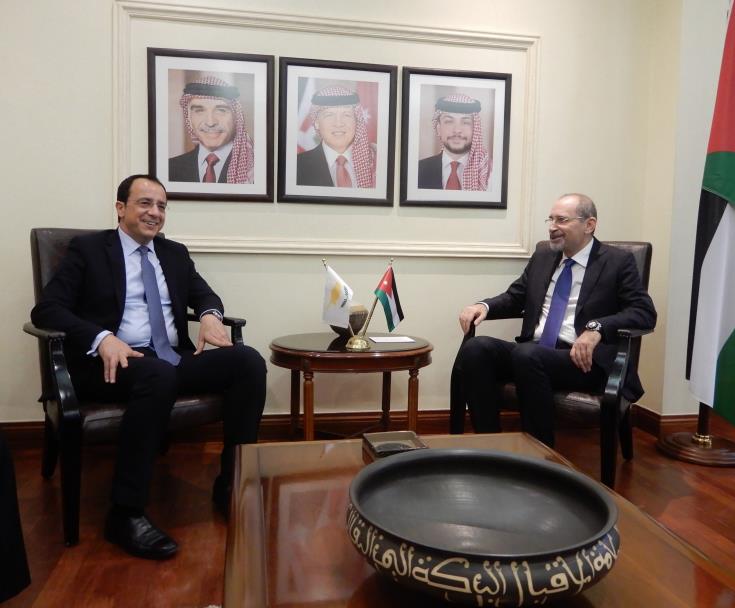Cyprus and Jordan Foreign Ministers agree that once de-escalation is achieved in the Middle East, the international community must swiftly resume peace talks between Palestinians and Israelis.
Israel conducted dozens of airstrikes on the Gaza Strip on Monday after Palestinian militants fired barrages of rockets at southern Israeli cities.
The pre-dawn raids on Gaza were some of the heaviest seen since the fighting began a week ago.
Israel said it hit facilities belonging to the militant group Hamas and several commanders’ homes, but main roads and power lines were also damaged.
The UN Security Council held an emergency meeting on Sunday, and Secretary-General António Guterres warned that further fighting had “the potential to unleash an uncontainable security and humanitarian crisis”.
He pleaded for an immediate end to the “utterly appalling” violence.
Cypriot Foreign Minister Nikos Christodoulies said an end to the vicious cycle of violence could only be achieved through a comprehensive and lasting settlement, based on a two-state solution and United Nations Security Council Resolutions.
Christodoulides made the comments in Amman after meeting his Jordanian counterpart and Ayman Al Safadi on Sunday.
“Once de-escalation is achieved ― and we really hope this can be achieved soon ― the international community must act swiftly, purposefully and decisively towards the resumption of the peace process track between Palestinians and Israelis”.
The violence began after weeks of spiralling Israeli-Palestinian tension in occupied East Jerusalem, culminating in clashes at a holy site revered by both Muslims and Jews.
Hamas, which controls Gaza, began firing rockets after warning Israel to withdraw from the site, triggering retaliatory airstrikes.
The two ministers exchanged views on steps required to de-escalate the current crisis in the Middle East.
“Regrettably, the current situation is taken advantage of by third countries to promote their own agenda, and this is unacceptable.
“Needless to say, Cyprus – as a country of the region maintaining excellent relations with neighbouring countries, and as an EU member state – supports any initiative that aims at restoring calm and therefore preventing further casualties.”
Christodoulides stressed the importance of respecting and upholding the status quo of the Muslim and Christian holy sites in Jerusalem under the Hashemite Custodianship.
He also said briefed and Ayman Al Safadi on developments regarding the Cyprus problem, “and our disappointment at the outcome in Geneva.”
“There is a shared understanding that geography is a constant, it does not change, and it is up to countries of the region to make our geography a blessing, to make our region a region of peace, stability and prosperity.”
He also noted that they exchanged views on the current state of affairs in EU-Jordan relations. “Jordan is a key partner for the EU in the region in many ways, predictable and reliable, and as such, we will continue to actively support the enhancement of its ties and relations with Europe,” he added.
Nicosia wants to act as an EU bridge for Jordan and the entire region, making a case for its importance to Brussels.
“We shall continue to advocate for the EU’s need to be present, engaged and active in this part of the world, which is after all the EU’s own neighbourhood, and one of great geostrategic importance.”









